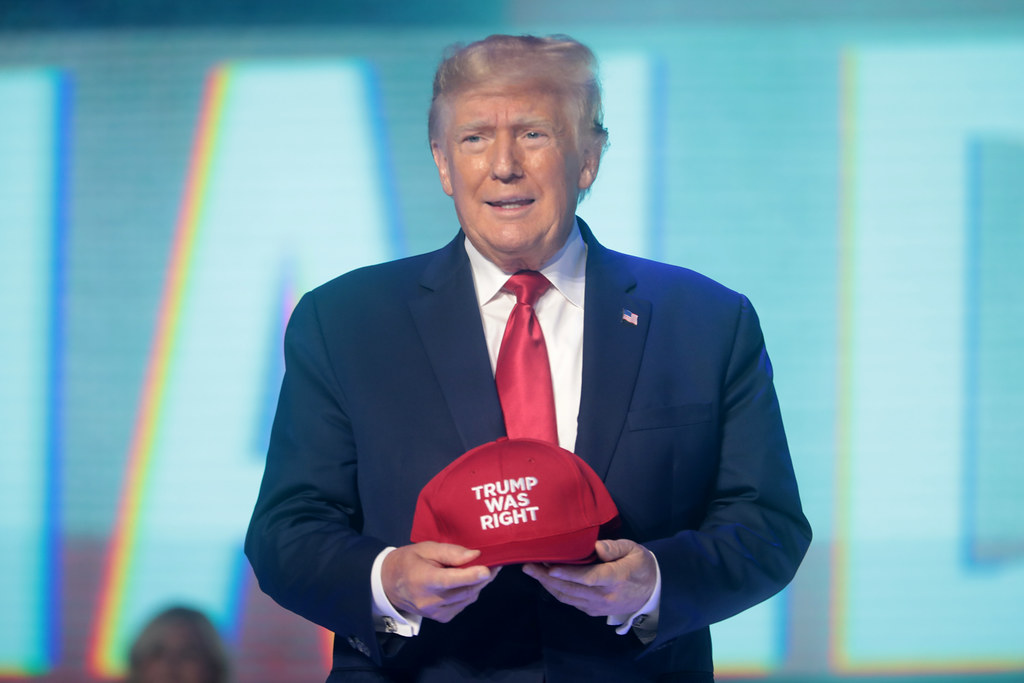
The United States – China trade war just escalated significantly. The Trump administration has responded by imposing sweeping tariffs on hundreds of billions of dollars in Chinese goods. This unilateral and aggressive action greatly escalates the stakes for both nations. Chinese tariffs have American farmers particularly up in arms, as their livelihoods rely significantly on exporting commodities such as soybeans and sorghum across the Pacific. At the same time, trade between the two nations is about to come to a grinding halt. The intricacies of the U.S.-China relationship are more complicated by the day.
The Trump administration has pursued a conflictual stance with China. They’re counting on their economic superiority to force Chinese President Xi Jinping to break and give in to their demands. Critics have warned that as a one-size-fits-all solution, the proposal would be too simplistic in light of complexities inherent in U.S.-China trade relations. The new tariff decisions announced recently by the White House have included tariffs on many popular consumer products, including iPhones. These amendments and masterful sleight of hand are growing the confusion tenfold.
Tariffs and Trade Impacts
The tariffs that the U.S. has put on are so onerous as to be almost impossible to satisfy and thus crush trade, which is almost the point. As many economists have been quick to warn, an all-out trade war might prove disastrous for both countries. Our agricultural sector, and most especially American farmers, are already facing the brunt. Exports to China are becoming essential for the survival of their businesses.
In an effort to mitigate some of that strain, the White House recently issued an important announcement. They’ll waive some imports of Chinese-made smartphones and laptops from the steepest tariff rates. This decision appears to acknowledge concerns that exorbitant tariffs on these items could severely damage the tech industry and burden American consumers.
“Nobody is getting ‘off the hook’ for the unfair Trade Balances, and Non Monetary Tariff Barriers, that other Countries have used against us, especially not China which, by far, treats us the worst!” – Donald Trump
Though some of these exemptions have been granted, the administration is still very much committed to rattling sabers over long-standing complaints against China. These complaints raise some important points. These such as market access, intellectual property theft, and a huge trade deficit, all three of which President Trump has cited as evidence of China’s predation on the United States.
Political Ramifications
Yet, the trade war continues to rage and hurt the economy. Because President Trump’s political future is on the line. The chaotic economic management that came hand in glove with this poorly thought out trade strategy has contributed to sinking approval ratings for the President. As a recent CBS poll found, that makes only 45% of people approve of Trump’s handling of the economy. This is further indicative of a deepening dissatisfaction with voters as inflation persists.
Republican lawmakers should be especially attuned to these trends as they head into the midterm elections next fall. It would be reckless campaigning to ignore how the bad consequences of a failing economy might boomerang and hurt their own campaigns. The White House’s strategy is even worse; it appears to be a bet. It depends on the confidence that, in the end, American economic muscle will win out.
“It’s kind of almost a two-world system. There’s a process about China, and that’s very, very nascent…and then the process for everybody else,” – Kevin Hassett
The administration’s approach has understandably fed doubts about whether it really understands what’s at stake in U.S.-China relations. Critics argue that while the tariffs may be aimed at rectifying unfair trade practices, they risk alienating key allies and complicating diplomatic relations.
Economic Consequences
The economic repercussions of this trade war are wide-ranging, to say the least. China, of course, is the elephant in the room as far as global trade is concerned. Its exports make up about a fifth of the value of all goods exported to the U.S. But as both nations continue to retaliate, the risk of economic fallout only heightens.
Farmers, especially, fear for their future, as they work to find a way forward through the fog of uncertainty established by these tariffs. The agricultural community have previously undergone struggles from inconsistent pricing and market accessibility setbacks. Many farmers fear that continued tensions will hinder their ability to export goods essential for their livelihoods.
“This is just another great example of how President Trump had a detailed plan from the beginning that’s being executed exactly as directed,” – Stephen Miller
The Trump administration is quickly moving its anti-worker, anti-environment trade agenda forward. It continues to maintain that these misguided policies will somehow advance American interests and values. Experts are warning this wonderful idea won’t be enough to achieve its ambitious aims. Second, this is an unintended consequence. The policy would actually hurt U.S. consumers by driving up costs.
What The Author Thinks
The ongoing trade war with China seems to be more about political posturing than real economic strategy. While the intention behind the tariffs may be to challenge China’s unfair trade practices, the negative consequences for U.S. farmers, tech industries, and consumers cannot be ignored. The uncertain and heavy-handed approach to the trade relationship has left many U.S. industries vulnerable to retaliation and inflation. With no clear resolution in sight, this strategy risks deeper economic damage without achieving substantial gains for the United States.
Featured image credit: Gage Skidmore via Flickr
Follow us for more breaking news on DMR
